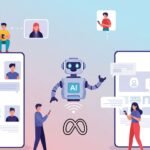After months of speculation, industry whispers, and cryptic clues from OpenAI leadership, the wait is almost over: GPT‑5 is set to launch in early August 2025. And it may not just be another iteration—it could redefine what’s possible in artificial intelligence.
According to multiple sources including The Verge, Axios, and Reuters, OpenAI is preparing to unveil its most advanced model to date. CEO Sam Altman has described GPT‑5’s performance as “fast to the point of being scary.” With capabilities that reportedly surpass current AI systems in reasoning, memory, and multimodal comprehension, GPT‑5 could mark a paradigm shift for developers, enterprises, and AI-first startups.
Let’s break down what we know—and what’s likely to change.
What Is GPT‑5?
GPT‑5 is the latest generative model from OpenAI, the creators of ChatGPT. It succeeds GPT‑4 and the interim GPT‑4.5, and is expected to merge OpenAI’s separate model families (like the reasoning-focused o-series) into one unified architecture.
While exact specifications remain under wraps, early leaks and insider interviews suggest that GPT‑5 will:
- Handle significantly longer context windows (possibly over 1 million tokens)
- Incorporate persistent memory, enabling more personalized and efficient AI agents
- Offer native multimodal capabilities, with native understanding of text, images, audio, and possibly video
- Deliver faster inference speeds and lower hallucination rates, driven by architectural improvements and more curated training data
Smarter, Not Just Bigger
The real breakthrough isn’t just size—it’s how GPT‑5 thinks.
“GPT‑5 isn’t about throwing more compute at the problem,” says one AI researcher familiar with the roadmap. “It’s about reasoning, memory, and compositional thinking. This is what will separate toys from tools.”
Expect GPT‑5 to excel in tasks requiring complex logic, agentic workflows, and multi-step problem solving. This could have sweeping implications for fields like:
- Autonomous agents and copilots
- Legal and medical analysis
- AI-powered research assistants
- Enterprise process automation
Developer Ecosystem: Tools, APIs, and Plugins
With GPT‑5, OpenAI is likely to expand its ecosystem beyond ChatGPT. Early reports suggest:
- Enhanced developer APIs with longer context and finer control
- Seamless integration with OpenAI’s memory, tools, and retrieval systems
- Expanded support for third-party plugins and custom agents
- Possibly, video generation or understanding APIs for enterprise use
For AI startups and builders, this is a game-changer. Tools that once needed months of prompt engineering may now become out-of-the-box features.
The Business Impact: Who Should Care?
The ripple effects of GPT‑5 will touch virtually every industry. Here’s who should be paying attention:
- Product teams can prototype faster with more capable LLMs.
- Marketers can generate highly contextual, brand-safe content at scale.
- Sales orgs can deploy AI agents with real-time memory and reasoning.
- Customer support can shift from reactive chatbots to proactive copilots.
- Healthcare, finance, and legal firms gain access to specialized reasoning engines.
If GPT‑4 made AI commercially viable, GPT‑5 could make it mission-critical.
Caution Ahead: Risks and Ethics
With great power comes… deeper concern. If GPT‑5 lives up to expectations, the risks are also amplified:
- Deeperfakes and misinformation
- Job displacement in high-skill domains
- AI agency and decision-making autonomy
OpenAI will need to address these with robust guardrails, transparency mechanisms, and policy cooperation.
As Altman said in a recent interview:
“We’re entering an age where our biggest inventions won’t be visible. They’ll be behind the screen—making decisions, building systems, answering questions. We need to tread carefully.”
The Bottom Line
GPT‑5 isn’t just a next-gen AI model. It’s the foundation for the next computing platform.
Whether you’re a developer, founder, policymaker, or just someone watching the AI space, the next few weeks will be defining. Because once GPT‑5 goes live, the rules of AI—possibly even the rules of work, creativity, and knowledge—may start to change.
Stay tuned. The future is arriving faster than we think.










